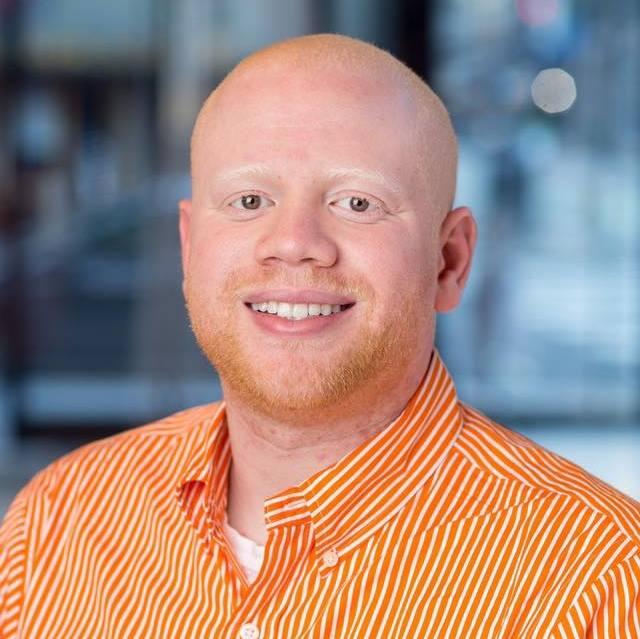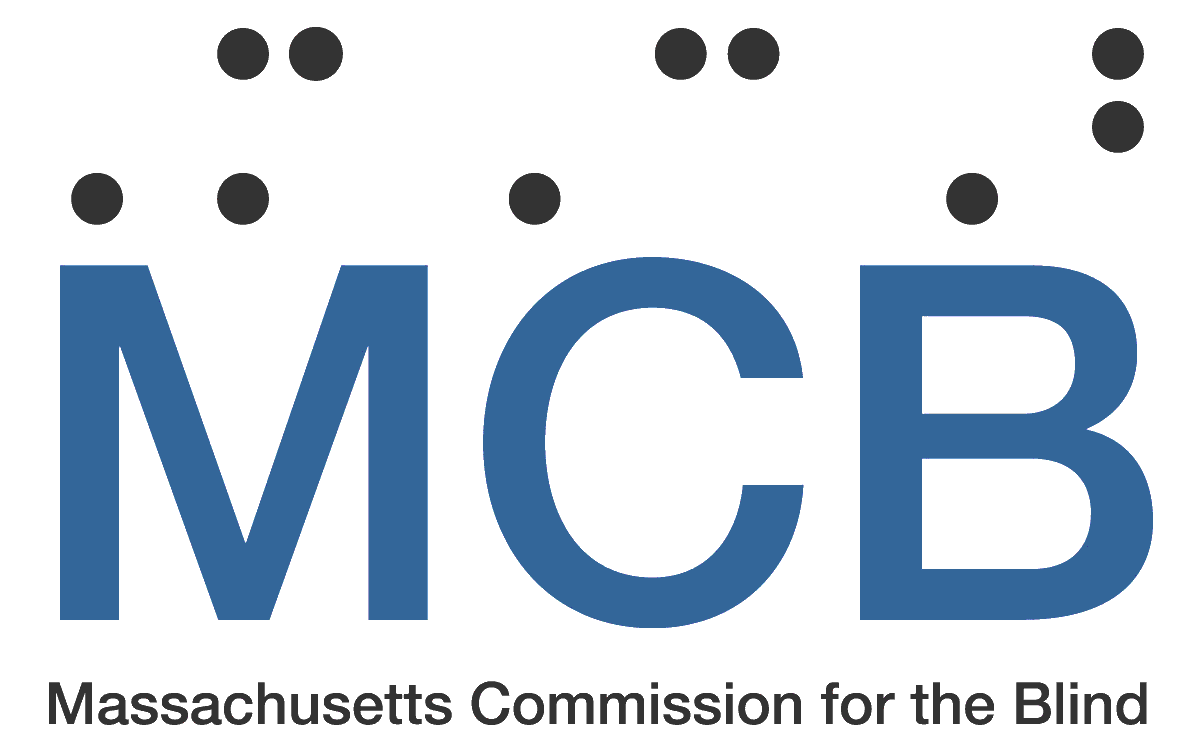- Massachusetts Commission for the Blind

By Owen Devlin
Q&A with Phillip Mason, Development Director at North Shore Community Health
Phillip Mason currently serves as the Development Director at North Shore Community Health in Salem, Peabody, and Gloucester. In this role, Mason ensures that fundraising and marketing goals are achieved, and he works to build community partnerships that strengthen the mission of the Health Centers on the North Shore. Personally, Mason is visually impaired, and believes that “Every individual with a disability deserves a fighting chance.” In helping to ensure that individuals with visual impairments have equal access to opportunities, Mason has worked with several different organizations throughout the country to create adaptive sport programs that promote inclusion among all individuals. In addition, Mason recently worked with funders to ensure opportunities for in-home vaccination, so that the Health Centers could provide vaccines to individuals at their home during the COVID-19 pandemic, alleviating barriers of transportation and travel.
1. Tell us a little bit more about yourself?
In addition to my role at North Shore Community Health, I have worked with several organizations including the Disability Rights Fund, advocating for the implementation of the Convention on the Rights of Persons with Disabilities (CRPD) and the Wisconsin Adaptive Sports Association to help promote the value of sports for individuals with disabilities. Through my work in adaptive sports, I have since started multiple goalball teams throughout the country in places like Wisconsin, Michigan, Baltimore, and Washington D.C.
2. Did you receive employment services from MCB?
In Wisconsin (where I lived before Boston), I served as Director of Development and Marketing for the United Cerebral Palsy of Southeastern Wisconsin (UCP) now known as Broadscope Disability Services. Upon my arrival in Boston, I accepted a position as the Associate Director of Individual Giving, where I implemented different strategies for development. I took a pay cut for this position, which was good for our family at the time, but sought out Employment Services from the Mass Commission so I could eventually work my way back up to the director level I was at in Wisconsin. So, through MCB”s help, I took a course at Boston College so I could obtain my Professional Fundraising Certificate, which helped me gain more credentials related to fundraising. I put my resume back out there and after two years, I accepted a position working for North Shore Community Health.
3. Can you tell us more about your current role with the North Shore Community Health Center?
When I accepted the role at North Shore Community Health, it was my first time branching outside of the disability field to focus my efforts in in healthcare. That said, it proved to be quite the learning curve, and it took me some time to develop connections in this area as well.
Currently, a big part of my role is to strengthen and grow our new Development Program. When I first started here, our company CEO expressed interest in healthcare funding so that we could help individuals living in marginalized communities who were underserved or could not cover healthcare costs.
Although our funding numbers have significantly increased, it is still not enough to serve individuals in surrounding communities. Currently, we are looking at building a new Health Center in Salem, and I have had great communications with Senator Elizabeth Warren, Congressman Seth Moulton, and Salem Mayor Kim Driscoll. I think that a new Healthcare Center with an Urgent Care Facility in the downtown area will be very beneficial for tourists, individuals with disabilities, and individuals in marginalized communities because other health service options will be available in the area, aside from the Hospital’s ER.
4. Can you tell us more about your program to vaccinate individuals within their homes?
Currently, our mission is to help individuals get vaccinated who haven’t already done so. Specifically, we work to ensure support for individuals living in marginalized communities, and answer any questions that community members might have. Particularly, individuals might have questions about their immigration status, while others might worry about how they will be classified by the State if they receive a free vaccine.
In addition to answering questions, we provide and maintain factual information about the COVID-19 vaccine. In fact, we were recently at the Pride Flag Raising Event in Salem in hopes of administering the vaccine to more individuals.
Furthermore, we like to be present within our community to address any barriers that individuals might face with transportation or language. Many of our providers speak different languages so they can better communicate and address the needs of individuals from different backgrounds. In an effort to alleviate transportation barriers, we provide vaccines in the community and have Community Health Workers going door to door.
Lastly, I think it is really important to reach out to communities to find out what their specific needs are in order to provide the necessary support systems. Personally, I reached out to the Deaf community and my connections at MCB to see how I could further address the needs of individuals with vision impairments.
5. How will this program specifically benefit the blind and visually impaired community?
As I have mentioned, transportation is a large barrier that many individuals with vision impairments face. That said, getting the vaccine to their door is something that our program takes very seriously because we have an obligation to serve the community beyond our four walls. It becomes a question of: “How can we get to where they are to best meet their needs?”
6. Personally, what are some coping strategies that you use if you are feeling fatigued?
Personally, I would say a silver lining of this pandemic is that individuals with vision impairments can finally have their own workspace in their homes, without having to worry about the needs of others around them. For example, I am currently working remotely in my home office, and I can turn off the lights during conference calls if I need to. Also, due to my position in my company, I can assign specific tasks to my teams that may be difficult to accomplish because of my vision. Coping skills, accommodations, and modifications are tools that I incorporate into my personal and professional life as well.
In addition, I believe my disability has helped me become more successful. Many of the skills that employers look for, such as problem-solving skills, are very familiar to individuals with disabilities because they’ve had experience with this from a young age.
7. Personally, can you tell us about your experience in requesting for accommodations at work, and can you offer any advice for blind and visually impaired individuals who are in the same position?
Personally, I heavily relied on volunteer opportunities early in my career, so it no longer became a question of whether or not I could complete a particular task, it becomes a statement of: “Yes I have completed this task, and here is how.”
When individuals first enter the workforce, the first step is to identify the things they can accomplish. Then, the individual should identify any barriers that may stand in their way. If there is a barrier, it is important to work with colleagues to find a way around it.
Lastly, it is important to build confidence. Specifically, it’s important for an individual to recognize their potential of achieving success in the workplace. Within this, if someone else with a disability has been successful in a particular position, there is no reason as to why an individual should doubt themselves.
8. Do you have any advice for blind and visually impaired individuals who may be having a difficult time adjusting to life?
If I could offer any advice to blind and visually impaired individuals, I would encourage them to seek out a mentor. Finding a mentor who is not just an advocate, but a mentor who can share their experiences with their mentee in hopes of reassuring them of their success in the same area. I would also encourage individuals who are blind and visually impaired to seek out a support system in their community so they can connect with others who are blind and visually impaired. In this way, each individual can offer insight about overcoming barriers, talk about life’s struggles, and share personal experiences to guide one another through different personal and professional situations.
